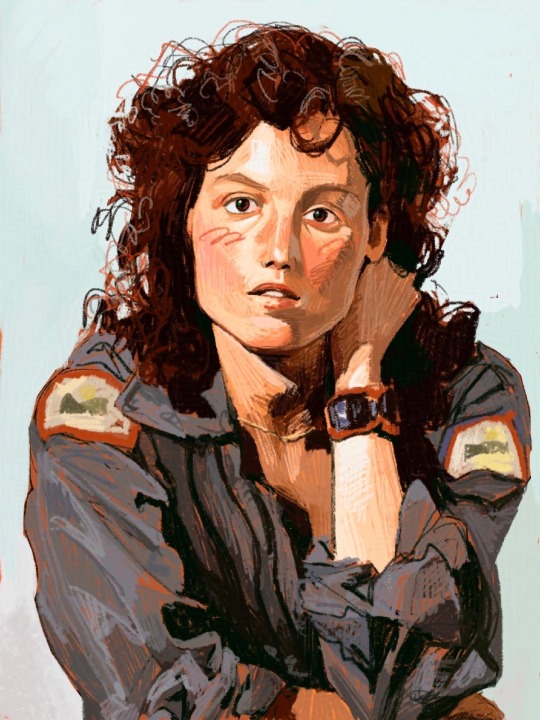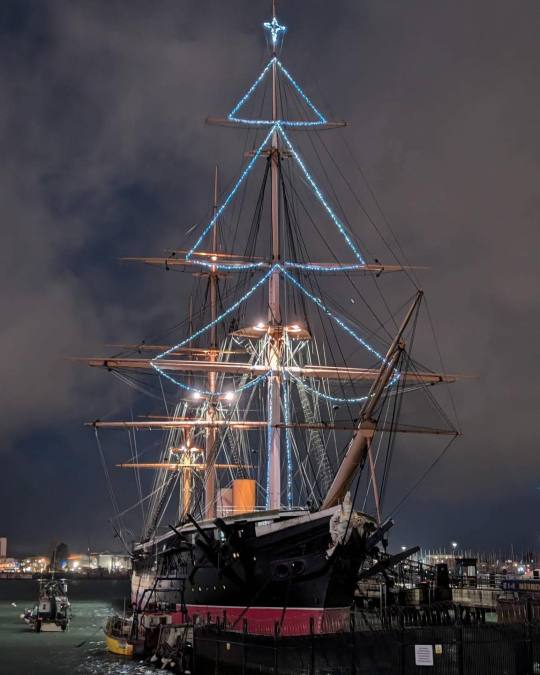#1979 calendar
Explore tagged Tumblr posts
Text
内田善美 Uchida Yoshimi
1979 calendar

#Uchida Yoshimi#内田善美#1979 calendar#japanese artist painter#original art#art#japanese art#illustration art#poster design#art style#artist painter#sai aeko#octopussy#illustrator painter#xpuigc#xpuigc bloc
11 notes
·
View notes
Text

ripley :)
#alien franchise#alien 1979#my art#artists on tumblr#procreate#risky posting from my phone nowadays. what if i accidentally hit#one of my rash hive photos im taking for my dermatology appt 😭#anyways. watch this space for more ripley soon (in the form of pinup calendar)#just need to edit it and export it. but all tha pages are done!
27K notes
·
View notes
Text

Duane Bryers - July/August 1979 Hilda Calendar Illustration - Brown & Bigelow Calendar Co. - American Pin-up Calendar Collection - Happy Monday!
#duane bryers#july#1979#hilda#calendar#illustration#brown & bigelow#pin up#american pin up#happy monday
274 notes
·
View notes
Photo

Seed Cooperative 1979
#tomato#1979#vegetables#seed#hungary#eastern bloc#vintage#socialist#socialism#calendar#pocket calendar
178 notes
·
View notes
Text

David Gold | 1979 COLT Calendar
6K notes
·
View notes
Text

Sam Haskins - Pentax Calendar, 1979 (Photographis '80)
#sam haskins#pentax calendar#photographis#photography#vintage#retro#aesthetic#beauty#seventies#70s#70s model#1970s
5K notes
·
View notes
Text

Sam Haskins
Pentax Calendar, 1979 (Photographis '80)
465 notes
·
View notes
Text




内田善美 (Uchida Yoshimi) 1979 calendar.
#uchida yoshimi#内田善美#vintage shoujo#retro shoujo#vintage illustrations#70s manga#shoujo#vintage manga#70s
397 notes
·
View notes
Text
Know your Destiel/Cockles history: a calendar
As a newcomer on Tumblr and on the Supernatural fandom, I first had trouble following all the past events that were regularly reminded and celebrated.
On this very special day (December 14th, European time), the following post is an attempt at listing those events, focusing on Destiel and Cockles (with a hint of Jenmisheel). Feel free to advise me for more (or less) dates!
Acknowledgement: The idea came from @youchangedmedestiel who also contributed to the content. The present post would never have been possible without @livebloggingmydescentintomadness 's Cockles masterlist. Color code: Destiel / Cockles
Honorary periodic event: FIMMF (Finger In My Mouth Friday)
January
12th: "Mish. Dee." (2021) - 1
16th: Broadcast of 15x09 “The Trap” (2020) - /
17th: ‘Isn't the season you met Misha?’ ‘Taste the rainbow’ JaxCon (2016) - 1
18th: The abandoned Jenmisheel podcast (2022) - 1
24th: Dean's birthday + ‘Jensen's the horse’ HousCon (2015) - / + 1
February
2nd: Broadcast of 12x10 “Lily Sunder Has Some Regrets” (2017) - /
14th: Destiel wedding anniversary (2021)
16th: Broadcast of 12x12 “Stuck in the Middle (With You)” (2017) - /
26th: ‘Which is funny, because so do I’ JIB11 (2023) - 1
28th: ‘Misha's been working out’ ‘He has though, hasn't he?’ NashCon (2016) - 1
March
1st: Jensen Ackles' birthday (1978) - 1 2 3 4
18th: Danneel Ackles' birthday (1979)
20th: Broadcast of 8x17 “Goodbye Stranger” + Gag reel (2013) - / + 1
23rd: Broadcast of 7x17 “The Born-Again Identity” (2012) + Broadcast of 15x13 “Destiny’s Child” + Gag reel (Jensen's infamous fart joke) (2020) - / + 1
April
1st: Mishapocalypse (2013) + Mishapocalypse 2.0 (2023) - 1 2 + 3
10th: “When Harry Met Sally” JIB2 (2011) - 1
13th: Season 15 EW Photoshoot (2020) - 1 2
15th: Broadcast of 5x18 “Point of No Return” + Gag reel (blowjob+‘we’re missing the gay angel’+‘confetti it’s a parade’) (2010) - 1 + 2 3 4
15th: Bishagate 2.0 NJCon (2023) + Misha’s Cas essay (2022) - 1 2 + 3
23th: Bishagate ‘I’m all three’ NJCon (2022) - 1
25th: ‘I happen to be straight’ (2022) - 1 2
27th: Broadcast of 12x19 “The Future” (2017) - 1 2 3 4
28th: ‘Balls deep’ CR8 (2024) - 1
29th: Broadcast of 6x19 “Mommy Dearest” + Gag reel (2011) - 1
May
6th: Broadcast of 6x20 “The Man Who Would Be King” (2011) - /
7th: First release of 'Watching Over Me' (2021) - 1
19th: Straddlegate JIB10 (2019) - 1 2 3 4
21st: Jensen's bear underwear reveal JIB8 (2017) - 1
23rd: ‘Okay babe’ (2021) - 1
24th: Misha tenderly rescuing Jensen+’We like you the best’+Hitch scene JIB5 (2014) - 1 2 3
26th: ‘It’s not a subtext. It was clear text.’ PurCon8 (2024) - 1
27th: ‘I talked to Jensen and Danneel this morning because I couldn’t sleep’ PurCon7 (2023) - 1
June
July
1st: ‘I miss my blanky’ + ‘I love you’ VS ‘I need you’ (2021 (yes, on the same fucking day)) + ‘Also, Cas is gay.’ (2023) - 1 2 3 + 4
14th: 'Destiel is Cockles Fault' Day SFCon (2024) - 1
24th: ‘Wow, that was really informative. Thank you.’ SDCC (2011) + ‘How do you know’ SDCC (2016) - 1 + 2
August
9th: Destiel fanfics first ship to reach the milestone of 100,000 stories 'I have to admit, I like being on top' (2021)
13th: ‘I’d love to do a Western…slash romcom with Misha’ VanCon (2017) - 1
17th: Cockles day at sea (2015) + ‘I would probably choose to be the car, because Dean would ride me all day’ SPNDEN (2018) - 1 2 + 3
18th: Destiel winning TV Choice Best Chemistry (2015) - 1
20th: Misha Collins' birthday (1974) - 1
September
8th: Release of "Some things I Still Can't Tell You", poetry book by Misha Collins - Men in the Woods (2021) - 1
13th: First broadcast of Supernatural (2005) - /
18th: Broadcast of Lazarus Rising, first appearance of Castiel (2008) + First release of Jensen publicly singing 'Angeles' (2012) (+Bonus: Jensen serenading Misha at JIB11 (2023)) - 1 + 2 3 4
24th: Broadcast of 5x03 “Free to Be You and Me” (2009) (Bonus: reference of ‘personal space’ at SFCon (2024)) - 1
October
11th: Danneel Ackles, sharing a picture of Jensen, reading "Some things I still can't tell you" by the fire, Misha tagged on his heart (2021) - 1 2
13th: Broadcast of 12x01 “Keep Calm and Carry On” + ‘You're poking me’ Gag reel (2016) - 1
16th: ‘He’s like an angel plushie’ DenCon (2021) - 1
20th: ‘I can say whatever I want because Danneel is in love with you' HCCB (2024) - 1
21st: Broadcast of 10x03 “Soul Survivor” + ‘Aloha cowboy’ Gag reel (2014) - 1 2
23rd: ‘I should have said ‘I love you too’ and hugged him’ VanCon (2022) - 1
28th: Broadcast of 11x04 “Baby” (2015) (Bonus: reenactment of the CasDean scene at JIB7 (2016))
November
5th: Broadcast of 15x18 "Despair" - Destiel's anniversary (2020) - /
8th: ‘Homosexual declaration of love’ Darklight Online Con (2020) + 'I live it' (2021) - 1 (no official proof because the panel has mysteriously been deleted from social medias around the 26th) + 2
11th: Broadcast of 10x05 “Fan Fiction” (2014) - /
12th: Broadcast of 9x06 “Heaven Can't Wait” (2013) - /
16th: Broadcast of 13x06 “Tombstone” (2017) + ‘Release the tapes!’ Day (2020) - / + 1
19th: Broadcast of 15x20 "Carry on" -> Last episode of Supernatural (so far 🕯🤞🏻) (2020) + Misha sharing by mistake (?) “The epic love story of Jensen Ackles and Misha Collins” blog (2013) - / + 1 2
24-25th: 'y yo a ti' (2020) - 1
24th: ‘His ferret goes other places’ (2024) - 1
26th: Misha having to live stream and do PR during Thanksgiving, in mid divorce, following 'y yo a ti' (2020) - 1
December
1st: Danneel sharing a post to promote "The Adventurous Eaters Club", featuring Jensen and their kids (2019) - 1 2
5th: ‘I love you, not like a brother, but like a lover’ CCXP (2024) - 1 2
6th: ‘Cas was supposed to have his arm around Dean in the bar’ CCXP (2024) - 1 2
14th: Cockles anniversary (2009) + Introduction of 'Eyes Like The Sky' beer (2020) - 1 2 3 + 4
19th: Jenmisheel holiday package (2017) - 1 2
#cockles#destiel#destiel is cockles fault#misha collins#jensen ackles#happy 15th anniversary#let's celebrate!
129 notes
·
View notes
Text

Half time with our calendar and this is the perfect moment to introduce you to a lady who shows the interface of Age of Sail and Age of Steam. She is generally regarded as the start of the Age of Steam and yet she still has both elements. But who am I talking about ? - The HMS Warrior

More about her history here:
HMS WARRIOR was built as part of Britain’s response to concerns over France’s maritime ambitions which included the building of LA GLOIRE, a powerful ironclad which was the most advanced warship of its day. WARRIOR was commissioned on 1 August 1861 and at that time unquestionably ruled the seas. Her main guns, engines and boilers were contained within an armoured wrought iron hull and she could be driven by both steam and sail. This combination meant that she could outrun and outgun any ship afloat and she never fired a shot in anger – the classic deterrent.
During the first commission her main role was to lead the Channel Squadron. On 22 November 1864 she paid off for her first major refit at Portsmouth Dockyard during which the ship was comprehensively refurbished. She was also completely re-armed with 7” and 8” muzzle loaded rifled guns. However, in the American Civil War the success of the Monitor was to have a dramatic effect on naval thinking and WARRIOR’s role as ‘Monarch of the Seas’ was to be very short-lived.
She re-commissioned in July 1867 and re-joined the Channel Fleet. The second commission was rather less interesting than the first as she was no longer regarded as the most powerful warship afloat and faded from the limelight. The second commission ended in 1871 and she then spent four years in refit at Portsmouth being fitted with improved boilers, steam power for the forward capstan and a new poop deck to accommodate an Admiral. On completion in 1875 she became part of the First Reserve Fleet where she was to remain until paying at Portsmouth on 31 May 1883.
After periods as a depot ship and part of HMS VERNON she was paid off in 1924. She was then converted for use as a floating oil jetty and in 1929 was towed to Pembroke Dock where she was to remain for the next 50 years. In 1967 the campaign to restore WARRIOR started and prominent in this was Sir John Smith who formed the Manifold Trust. A committee chaired by the Duke of Edinburgh met in 1968 to discuss her future and from this emerged the Maritime Trust. When Pembroke Dock closed in 1978 the Manifold Trust agreed to underwrite the cost of restoration and the ship was handed over to the Maritime Trust in 1979.
In 1983 ownership was transferred to the Ship’s Preservation Trust which became the Warrior Preservation Trust in 1983. Although the hull was very sound the rest of the ship was in a poor state. The task which was part restoration and part re-building needed vast resources not only of money (£8M) but also of skill, patience and endurance. The 8 year restoration programme at Hartlepool transformed her into one of the world’s most important historic warships and in 1987 she returned to Portsmouth where she is now moored in the Historic Dockyard.
A planned preservation programme is in place for the ship and over the years she has been dry-docked twice, and the upper deck, (£725K provided by the Heritage Lottery Fund), all three fighting tops and half moons and the stern gallery have been replaced.
#naval history#naval artifacts#hms warrior#19th century#age of sail#age of steam#tall ship#day 12#advent calendar
130 notes
·
View notes
Text







🎄💾🗓️ Day 14: Retrocomputing Advent Calendar - Atari 400/800🎄💾🗓️
The Atari 8-bit computer line was launched in 1979 with the Atari 400 and Atari 800. Both were advanced for home computers at the time. Both were driven by a 1.79 MHz MOS Technology 6502 CPU, with ANTIC and CTIA/GTIA custom chips for advanced graphics and the POKEY chip handling sound and input/output duties. The Atari 800 was the premium model, featuring a full mechanical keyboard, user-expandable to 48 KB of memory, more metal shielding, and more durability. The Atari 400 was a lower-cost alternative with a membrane keyboard, limited to 16 KB of RAM, and a simplified construction.
With hardware-accelerated scrolling, Player/Missile graphics, and rich sound, the Atari 8-bit systems were known for gaming and creative applications. They were a versatile platform with cartridge-based software, cassette, and floppy disk storage. Atari's proprietary SIO (Serial Input/Output) port allowed daisy-chaining peripherals such as printers, modems, and disk drives, making connecting them easier than with other systems.
Newer models were more compact, combined memory expansion to as much as 128KB, and compatibility with developing software and peripherals improved. Atari's 8-bit computers are remembered for having groundbreaking hardware and a very colorful game library, and they are still being used by the retrocomputing community.
While doing research for this, I saw the XE Game System, never saw it before, very 80s for sure!
The Atari XEGS (XE Game System) was launched in 1987. A repackaged 65XE with a removable keyboard, it boots to the 1981 port of Missile Command instead of BASIC if the keyboard is disconnected.
Have first computer memories? Post’em up in the comments, or post yours on socialz’ and tag them #firstcomputer #retrocomputing – See you back here tomorrow!
#retrocomputing#atari#atari400#atari800#8bit#vintagecomputer#classiccomputing#retrogaming#computerhistory#1970s#homecomputer#technology#electronics#gaming#6502#mos6502#antic#ctia#gtia#pokey#firstcomputer#retro#oldcomputer#vintagegaming#hardware
71 notes
·
View notes
Text

Chris Achilleos - "Christmas Siren" - 1979 British Artist Calendar Illustration - Original art sold by Heritage Art Gallery
121 notes
·
View notes
Photo

Iron Pot Budapest Customer service 7th district, 24 Rákóczi road, phone: 224 415 1979
#1979#budapest#hungary#eastern bloc#store#customer support#customer service#vintage#design#socialist#socialism#ad#advertistment#calendar#pocket calendar
77 notes
·
View notes
Text

𝗚𝘂𝗻𝘁𝗵𝗲𝗿 𝗞𝗼𝗲𝗻𝗶𝗴 for 1979 𝗖𝗢𝗟𝗧 Calendar
2K notes
·
View notes
Text

Sam Haskins - Pentax Calendar, 1979 (Photographis '80)
#sam haskins#pentax calendar#photographis#photography#vintage photography#vintage#retro#aesthetic#beauty#seventies#70s#70s model#1970s
911 notes
·
View notes
